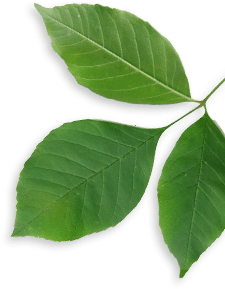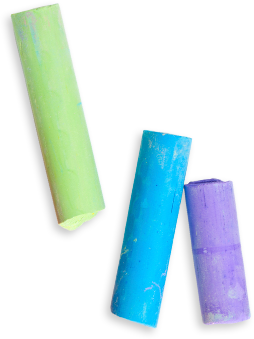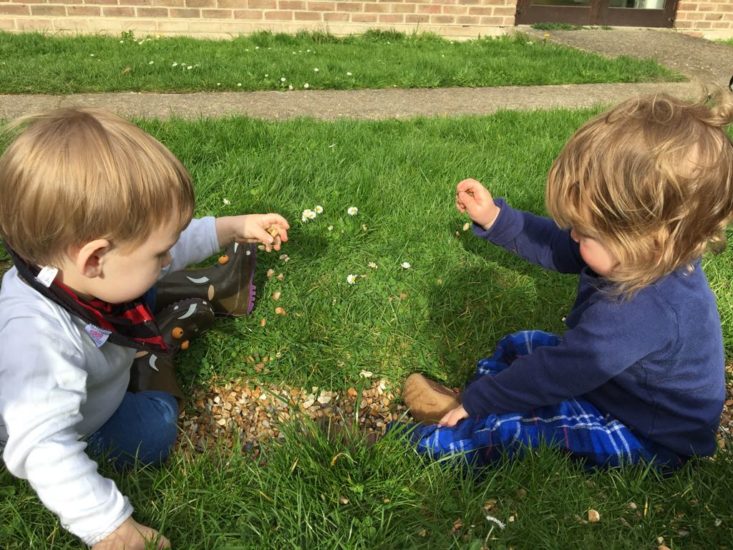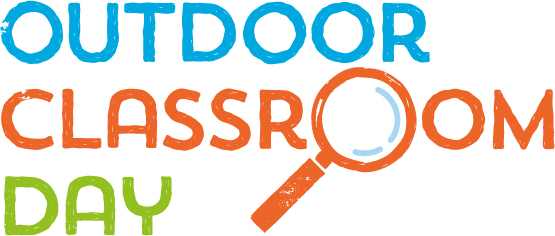

A fun idea for Outdoor Classroom Day

By Michael Follett, Author of Creating Excellence in Primary School Playtimes and Director of OPAL (Outdoor Play and Learning).
My daughter is now in her twenties and as part of her language studies travels abroad. Inevitably the question has come up of what her parents do.
The answer of ‘My father is a play adviser for schools’ is met with completely blank looks and questions like: He sells play equipment? He puts on plays? He plays in schools? So now she just says he is an education consultant. Which I am. I have never seen a child play that isn’t educating themselves in some way. If play was renamed self-education it might carry a lot more weight in the education sector and children might be more empowered and enabled to gain the diversity of play experiences they so desperately need. The only way to understand this is to carefully watch and listen to play with an open mind with the question, ‘what are children self educating themselves in now?’
The answers may surprise you. What can my body do today? How do I make friends and keep them? What can I invent myself? What is the world made of? How do I entertain myself? What does it feel like to fall over? What is sharing?
For children, the key to finding out the answer to all of these questions is primary experience. It is not called this because it is something that automatically happens in primary school. It is primary because actions are driven and experienced by children first hand arising from their own motivations, reasons and instincts. Play is a way that children generate huge amounts of experience for themselves, it is what the military would call the ‘gathering of intelligence’ and is sometimes done with a conscious sense of enquiry but often through an innate creative spontaneity.
I have noticed this especially since I got two puppies last summer. They are now nearly a year old but still play whenever they are not sleeping or eating. They are curious, inventive, hugely energetic, clumsy, don’t know what is and is not appropriate behaviour and delightfully playful. As a play specialist, it is fascinating to see how they discover the world through this playful drive finding out: What is that? Can you eat it, jump on it, chew it, play tug of war with it? How do I get on with my fellow being? How rough is too rough? How fast is too fast? What happens when I don’t do what I am told? Can I roll, jump, get under this, hide behind it, play chase around it? The more I observe them and contemplate why evolution resulted in intelligent species investing so much time and energy in the play process, the more I am convinced play may be the most important thing humans do in their early development.
As we approach Outdoor Classroom Day on 18 May I have been asking myself what can schools do to improve their play and develop a better understanding of its value? So, I would like to invite schools to do something the schools participating in the OPAL Primary Programme all regularly take part in called ‘teacher play days’. The idea is that playtime is extended for an agreed period. Say 20 minutes at the end of lunch. Then as many staff as possible including admin, helpers, assistants, and especially senior leadership go out and play with the children. I would like you to do three things.
- Carefully watch and listen to some play and think about what is going on and why.
- Respond playfully to a play cue from a child inviting you to join their world of play.
- Relax and have fun.
Let us know how you get on!
Post images and videos of your ‘teacher play days’ on social media and use the #OutdoorClassroomDay hashtag
Share
Find this article interesting? Share on social media to get friends and colleagues involved!











